Learn why eggs are such an amazing first food for babies (especially for baby led weaning) and how to serve them in ways that are adult and baby- friendly!
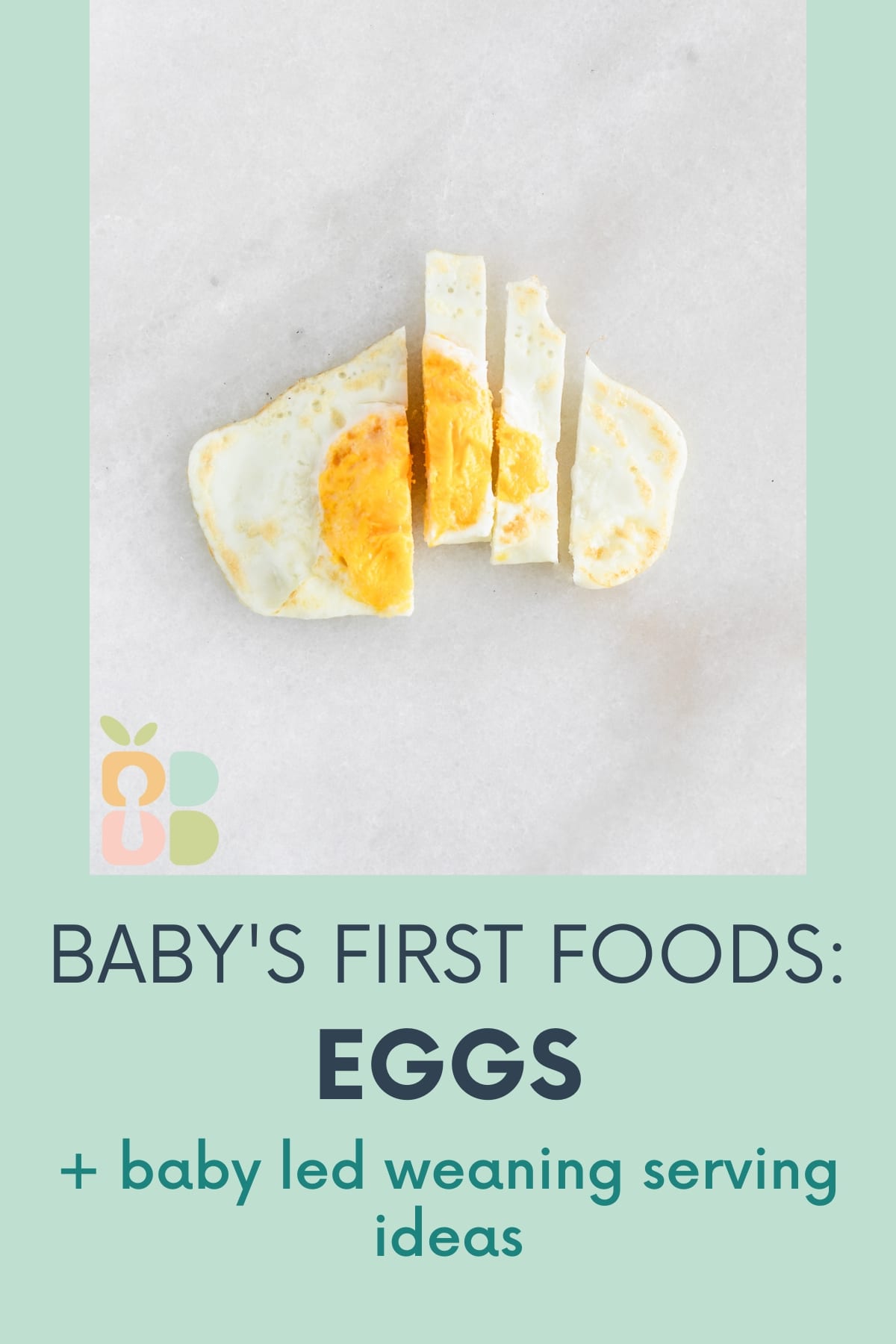
As a dietitian (and an adult human!) I love eggs. But I also adore serving them to my kids. And I especially eggs as a first food for babies! There are so many reasons why I think that eggs should be on baby's plate, and why I recommend them from pregnancy and lactation all the way through adulthood. Let's dive into those reasons and find out how to serve eggs using a BLW approach!
Jump to:
Why Eggs Are A Great First Food For Babies
Critical Nutrients In Eggs
Eggs are such a nutritional powerhouse. They're called out as a specific first food in the 0-2 years recommendations by the Dietary Guidelines Advisory Committee. Eggs are a great source of protein, and they contain essential nutrients like B vitamins (B12, biotin, riboflavin, pantothenic acid), vitamin D, selenium and iodine, which are all important nutrients for supporting baby's growth and development.
Where eggs really shine is choline. Choline is an essential nutrient for brain development that most Americans (about 90%!) are lacking. Eggs are one of the best food sources of choline, so it's important to include them frequently for both pregnant and nursing moms as well as babies and kids.
(PS - If you're worried about the cholesterol in eggs, don't be. Research shows that dietary cholesterol doesn't really have an effect on blood cholesterol, and eating one egg per day has no adverse effect on heart disease risk.)
Allergen Exposure
Another reason eggs are highly recommended for babies is that they are a potential allergen. Research shows that introducing allergens early and often may help reduce the risk of developing food allergies. That means we should include eggs (and other allergens) as frequently as possible as soon as babies are developmentally ready for solids, around 4-6 months (closer to 6 months for BLW).
Read more: Introducing Allergens To Babies
Ease, Versatility and Affordability
As a mama of two tiny ones, I know that we could all use EASY meals that are also nutritious. Eggs are always a go-to for me because they are so darn easy to make. And they are so versatile. Whether scrambled, fried, as a frittata, or on top of a hash, eggs are appropriate for any meal of the day!
Eggs are also an affordable source of high quality, easily absorbed protein. For those that have tight budgets, eggs can be a much more cost effective source of protein than meat. If your budget allows, look for free range or organic eggs, as they have more omega-3 fatty acids, but regular eggs are still incredibly nutritious.
How To Serve Eggs to Babies for Baby Led Weaning (6 months +)
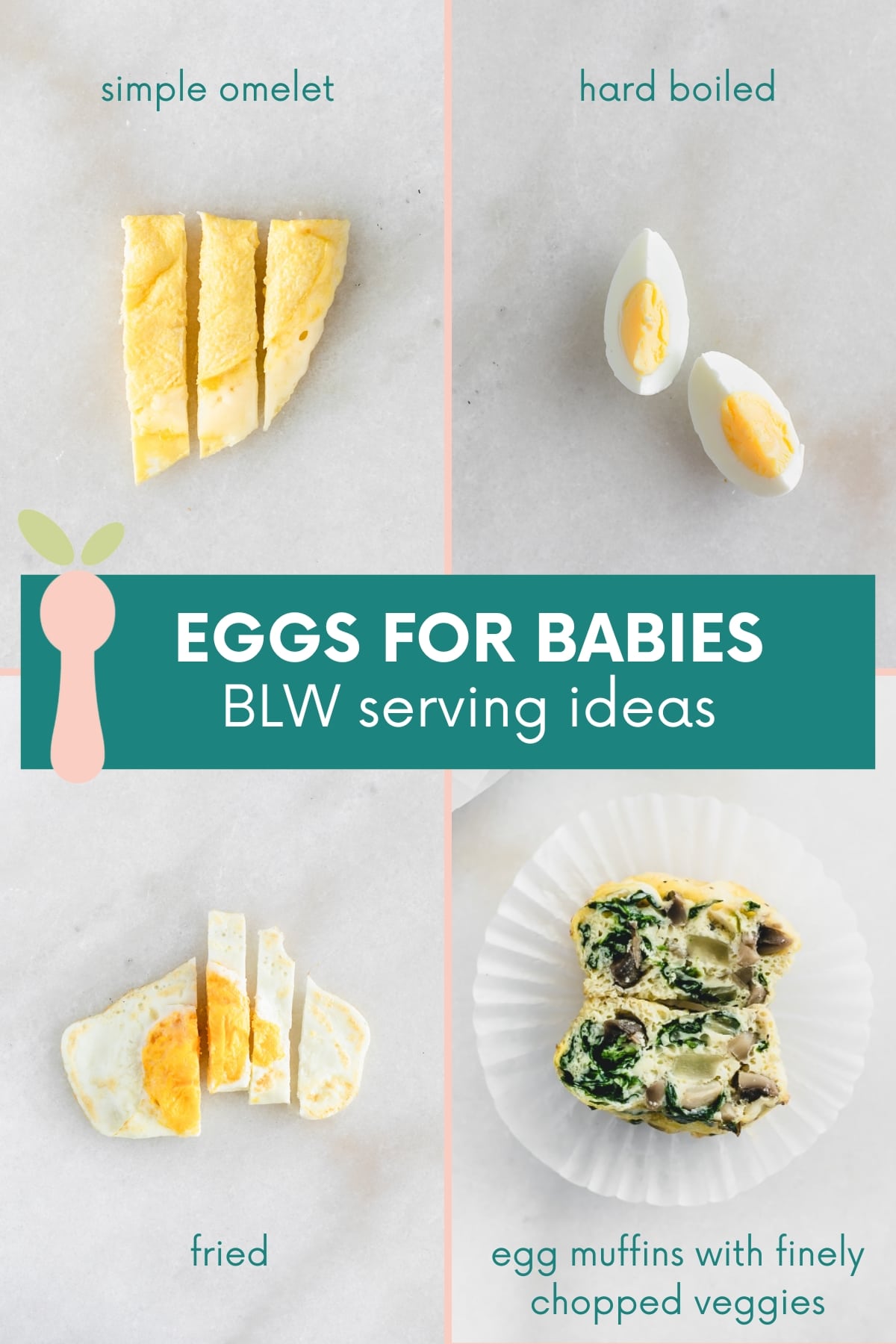
Eggs are naturally a great texture for baby led weaning, which I love! A few easy ways to serve eggs to babies 6 months and older include:
Hard scrambled and and cut into finger-sized strips
- Hard boiled and cut vertically into fourths
- Fried (over low heat, not crispy) and cut into finger-sized strips
As an omelet with cheese and/or finely chopped soft-cooked veggies, cut into strips
- As a breakfast casserole or egg muffins with finely chopped veggies, cut into strips
- French toast, cut into finger-sized strips
Egg salad mashed onto toast fingers or in a pre-loaded soft spoon
- Hard boiled and grated into tuna salad
- Lightly beaten and stirred into hot oatmeal (gently heat after stirring in if needed)
Once babies develop a pincer grasp around 8-11 months old, you can cut these foods into smaller pieces, about the size of your pinky nail, for practice with utensils instead of serving in long strips. You can also continue to serve in strips.
Be sure to read how to modify recipes for BLW and the safety guidelines for serving all foods to babies before beginning baby led weaning!
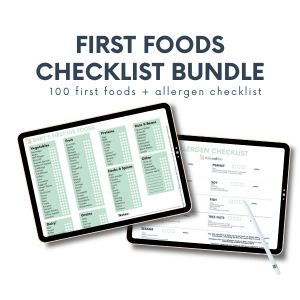



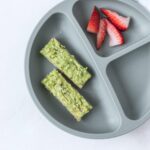
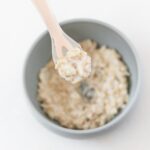








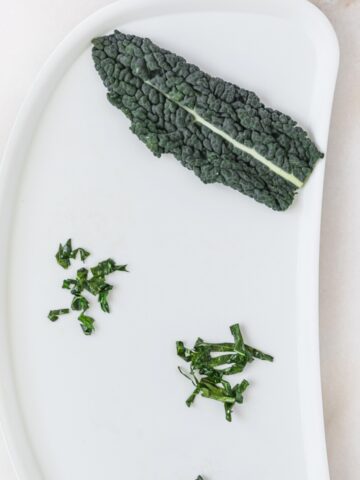
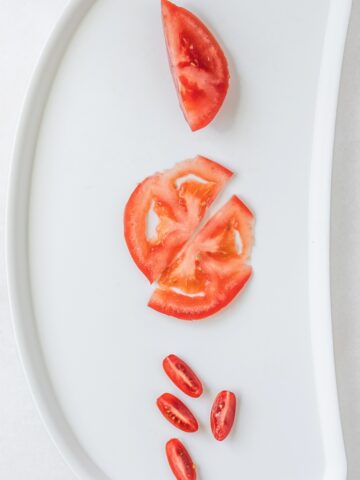


Lilian says
Great